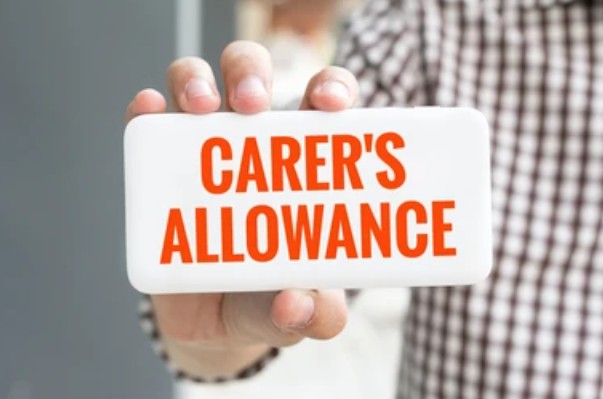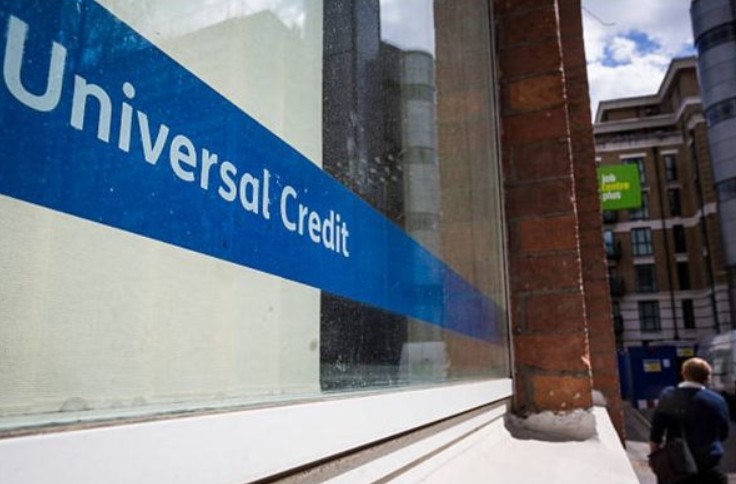The UK welfare system can be complex, especially when it comes to understanding how different benefits interact. A particularly common question in 2025 is: “Does Carers Allowance affect Universal Credit?” With the rising cost of living and more people taking on informal caring roles, it’s crucial to understand what you’re entitled to and how to maximise your income legally and ethically.
This guide offers an in-depth, up-to-date explanation of how Carer’s Allowance and Universal Credit relate, who qualifies for each, and what it means for your household finances if you’re receiving—or planning to apply for—both.
What Is Carer’s Allowance and Who Is Eligible?

Carer’s Allowance is one of the UK’s longest-standing welfare benefits, designed to financially support individuals who dedicate significant time each week to look after someone with a long-term illness or disability.
To qualify for Carer’s Allowance in 2025, all of the following conditions must apply:
- You are 16 years or older.
- You spend at least 35 hours per week caring for someone.
- You earn no more than £151 per week after tax, National Insurance, and certain expenses.
- You are not in full-time education (21 hours or more of supervised study per week).
- The person you care for receives one of the following:
- Personal Independence Payment (PIP) (daily living component)
- Disability Living Allowance (DLA) (middle or high care component)
- Attendance Allowance
- Armed Forces Independence Payment
- Constant Attendance Allowance at or above a specific rate
The weekly payment is currently £81.90, and it is usually paid every four weeks. While this may not seem like a large sum, Carer’s Allowance provides National Insurance credits, helping you build towards your State Pension even if you’re unable to work.
Keep in mind that claiming Carer’s Allowance may affect the benefits of the person you’re caring for. If they receive a “Severe Disability Premium,” it may be reduced or stopped.
What Is Universal Credit and How Is It Calculated?
Universal Credit (UC) is a means-tested benefit for people on low incomes or out of work. It has replaced several older benefits—including income-based Jobseeker’s Allowance, Housing Benefit, and Tax Credits—with one single, streamlined payment.
Your UC payment includes a standard allowance and may also include additional elements depending on your circumstances. These can include:
- Child Element – if you have dependent children
- Disabled Child Element – for children receiving DLA or PIP
- Housing Element – to help cover rent
- Limited Capability for Work Element – for health issues affecting work ability
- Carer Element – for unpaid carers
The amount you receive depends on:
- Your household income
- Any savings over £6,000 (which reduce UC gradually)
- Your housing costs
- Whether you have children or disabilities
Universal Credit is assessed and paid monthly, with earnings reported in real time using HMRC data. Importantly, your total household income is considered, not just individual income, meaning if you live with a partner, their earnings also affect your entitlement.
Does Carers Allowance affect Universal Credit?

Yes, Carer’s Allowance directly reduces your Universal Credit award. This is because Carer’s Allowance is classed as non-work income, and all non-work income is deducted pound for pound from your Universal Credit payment.
Here’s how it works:
- If you receive £81.90 per week in Carer’s Allowance (roughly £327.60 per month), your UC entitlement will be reduced by that exact amount.
- It does not trigger the work allowance, which is a partial earnings disregard. Unlike employment income, Carer’s Allowance has no earnings disregard in UC calculations.
This can lead to confusion or even disappointment, as some carers assume the two benefits will stack on top of each other. However, this reduction is offset in many cases by something called the Carer Element, which we’ll explore in the next section.
Also worth noting: You must inform Universal Credit that you are receiving Carer’s Allowance. Failing to do so could result in overpayments, which DWP can later reclaim.
Can You Receive Both Carer’s Allowance and Universal Credit?
Yes, and you should apply for both if you meet the eligibility criteria. Although receiving Carer’s Allowance reduces the amount of Universal Credit you’re paid, being a carer allows you to access the Carer Element in UC, which can compensate for this deduction and sometimes leave you better off overall.
In some cases, you might qualify for the Carer Element even if you’re not receiving Carer’s Allowance. For example, if your income is slightly above the earnings threshold for Carer’s Allowance, but you still provide care for at least 35 hours a week, you could still get the Carer Element.
Claiming both also helps unlock additional benefits, such as:
- Free prescriptions in England (for you and the person you care for)
- Free school meals for children
- Council Tax reductions
- Support for energy bills or cost-of-living payments
Ultimately, the benefits are interconnected, and understanding this relationship can ensure you receive every penny you’re entitled to.
What Is the Carer Element in Universal Credit?
The Carer Element is a component within Universal Credit that recognises unpaid care. As of 2025, it is worth £198.31 per month and is available to individuals who:
- Care for someone for at least 35 hours per week
- The person being cared for receives a qualifying disability benefit
- The carer is not already receiving the Limited Capability for Work and Work-Related Activity Element (you cannot receive both)
Unlike Carer’s Allowance, there’s no earnings cap for the Carer Element. So even if you earn too much to qualify for Carer’s Allowance, you might still be eligible for this UC top-up.
Also important: Only one Carer Element is paid per UC household, even if both partners in a couple are carers. However, if both are caring for different people, you can still each claim Carer’s Allowance, though the UC Carer Element will remain limited to one.
The Carer Element can help cushion the reduction caused by Carer’s Allowance. In some cases, it can actually leave you slightly better off overall by ensuring you receive recognition in both systems.
How Does This Work for Couples or Shared Households?

When living with a partner and claiming Universal Credit jointly, the system considers both of your incomes and circumstances.
If both partners are carers:
- You can each claim Carer’s Allowance, provided you care for different individuals.
- Your Universal Credit household award will include only one Carer Element, regardless of how many people are caring.
- The income from both Carer’s Allowance claims will be deducted from your Universal Credit total.
In shared housing (such as siblings or friends sharing accommodation), each individual can claim Carer’s Allowance in their own right, and may also apply for Universal Credit separately if they are not part of the same “benefit unit.”
Understanding the household rules in Universal Credit is essential, especially for informal care arrangements. You may benefit from getting advice from Citizens Advice or a welfare rights specialist if your setup is not straightforward.
Will Carer’s Allowance Affect Other Benefits or Entitlements?
Yes. While Universal Credit is the main concern here, Carer’s Allowance can also affect:
- Council Tax Reduction: In many areas, carers qualify for additional discounts. This is assessed locally by your council.
- Pension Credit: Carer’s Allowance is counted as income, but a Carer Addition may increase your overall entitlement.
- Housing Benefit (if still receiving it): Carer’s Allowance is considered income and may reduce your award.
- State Pension: If you already receive State Pension, you cannot be paid Carer’s Allowance due to the “overlapping benefits rule,” but you can still get the underlying entitlement, which may boost other benefits.
Claiming Carer’s Allowance may also affect the benefits of the person you care for—especially if they are receiving a Severe Disability Premium. Always check the implications before submitting a new claim.
Should You Apply for Both Benefits?
In most situations, the answer is yes. Even though Carer’s Allowance reduces your Universal Credit, the Carer Element often makes up for it, and the long-term benefits are significant:
- You accumulate National Insurance credits, which count towards your State Pension.
- You may access wider benefits, such as housing help or prescription exemptions.
- You protect yourself against future income drops by staying within the benefit system.
The only situations where you might reconsider claiming Carer’s Allowance are:
- If it negatively affects another benefit you or the person you care for receives.
- If your income exceeds the Carer’s Allowance threshold.
However, for most carers on low incomes, claiming both offers the most security.
How Can You Apply for Both Carer’s Allowance and Universal Credit?
Applying for Carer’s Allowance:
- Visit gov.uk/carers-allowance.
- You’ll need your National Insurance number, earnings details, and information about the person you care for.
- Claims can be backdated by up to 3 months.
Applying for Universal Credit:
- Apply at gov.uk/universal-credit.
- Make sure to declare your caring responsibilities during your application or update your UC journal.
If you’re already claiming UC and take on caring responsibilities later, report the change immediately to avoid missing out on the Carer Element.
Final Thoughts: What Should Carers Know in 2025?
Understanding the relationship between Carer’s Allowance and Universal Credit is essential for anyone balancing caring responsibilities with limited income. While Carer’s Allowance does reduce your Universal Credit, the additional Carer Element, National Insurance credits, and access to other entitlements make claiming both not only possible but often advantageous.
For anyone caring for a loved one in the UK today, making informed decisions about your benefits could mean the difference between just getting by and achieving some financial stability.

Leave a Reply